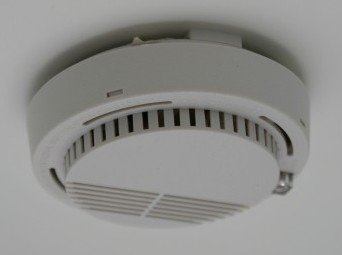Smoke and carbon monoxide regulations come into force
 By Jon Hughes, associate director, health and safety at Capita’s property & infrastructure business
By Jon Hughes, associate director, health and safety at Capita’s property & infrastructure business
The Smoke and Carbon Monoxide Alarm (England) Regulations 2015 came in to force on 1 October 2015 and we warmly welcome this common sense approach to tenant safety. The regulations state that detectors must be installed in any room where there is a solid fuel burning appliance, such as a gas fire or central heating boiler. The law also requires landlords to ensure that the alarms are maintained in good working order and we will be working closely with our clients to ensure they are fully compliant with all relevant health and safety legislation.
While the regulations provide a great step forward in protecting tenants, we would always say that the first line of defence is to ensure that gas appliances are checked by a Gas Safe registered engineer once a year. According to the Office of National Statistics, each year there are around 40 deaths from accidental CO poisoning in England and Wales – these are tragic consequences considering that poisoning can be so easily prevented.
The new regulations will be enforced by local authorities which have the power to serve a remedial order on any landlords who do not comply. Local authorities also have the power to enter the premises within 48 hours to carry out the remedial work and install an alarm if necessary. In the most serious cases, a fine of up to £5,000 can be imposed on landlords who fail to comply with the law.
Carbon monoxide alarms cost around £10 to buy – that’s less than the price of around four cups of coffee from a coffee shop. The new law will ensure that tenants are safely protected, but for private home owners and people using or living in caravans or boats, hopefully this will be a reminder to go out and pick up a carbon monoxide alarm as well.”
The 24th annual Capita Safety lecture takes place on Wednesday 14th October at the Royal College of Surgeons in London. We have ten places available for SHP readers. For further information please contact [email protected] or visit www.capitaproperty.co.uk/healthandsafety.
Smoke and carbon monoxide regulations come into force
By Jon Hughes, associate director, health and safety at Capita’s property & infrastructure business The Smoke and Carbon Monoxide Alarm (England)
Safety & Health Practitioner
SHP - Health and Safety News, Legislation, PPE, CPD and Resources Related Topics
New regulations around flexible working due in April
The full scope of the Building Safety Act
Carbon monoxide – the silent killer


Your article says that “The regulations state that detectors must be installed in any room where there is a solid fuel burning appliance, such as a gas fire or central heating boiler.” Are you sure about this? I was under the impression that solid fuel appliances in the regs only meant open fires, or solid fuel stoves.
The regulations state that detectors must be installed in any room where there is a solid fuel burning appliance, such as a gas fire or central heating boiler.
You learn something new in this industry every day, I never thought that gas fires and (unspecified fuel) central heating were classed as Solid Fuel burniong appliances
The regulations do not state that fire detectors or CO alarms MUST be installed in any room where there is a solid fuel burning appliance, such as a gas fire or central heating boiler, as stated above.
From item 4, (1) A i of the Regulations
. (ii) a carbon monoxide alarm is equipped in any room of the premises which is used
wholly or partly as living accommodation and contains a solid fuel burning combustion
appliance;
As far as I am aware a gas fire or central heating boiler is not a solid fuel appliance.